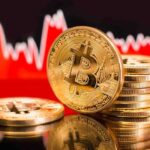An attack on Iran could send oil prices soaring to $120 a barrel, according to J.P. Morgan, and reignite US inflation pressures.
As tensions escalate in the Middle East, the bank warned that a military strike on Iran would likely trigger a spike in crude prices and push US consumer inflation back toward 5%.
“An attack on Iran could spike oil prices to $120, driving US CPI inflation to 5%,” J.P. Morgan analysts wrote.
Such a scenario would directly undercut one of the top policy goals of the Trump administration. President Trump has repeatedly prioritized lowering energy prices as a key lever to contain inflation. A renewed oil shock would complicate that mission and could even force the Federal Reserve to reconsider its current stance on interest rates.
“Oil at $120 would put rate hikes back on the table,” report warns
Oil markets are already on edge. After falling sharply earlier this year, prices have started to rebound amid growing geopolitical risks. WTI crude is currently trading near $66.50, with downside looking increasingly limited as Middle East tensions flare.
Brent crude has also climbed back toward $69 a barrel, its highest level since March 2025. The looming threat of military action is keeping traders on high alert and could drive further volatility in global energy markets.
Adding to the bullish case for oil, optimism is growing around energy demand as US-China trade tensions appear to be easing. Any resolution in global trade disputes would likely improve the outlook for global growth, and in turn, boost demand for oil.
For now, markets are caught between opposing forces. Recent weakness in crude prices has been driven by demand concerns, but the risk of a sudden supply shock is rising fast. Should Israel proceed with an attack on Iran, supply fears would likely dominate market sentiment , potentially sending oil prices sharply higher in a matter of days.
With inflation still elevated and the Federal Reserve watching oil markets closely, a surge toward $120 would dramatically alter the policy landscape and could force central banks to reassess their path forward.
Featured image via Shutterstock








